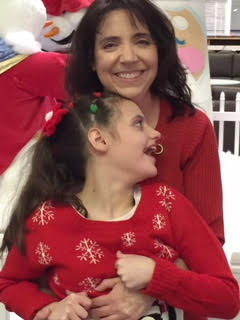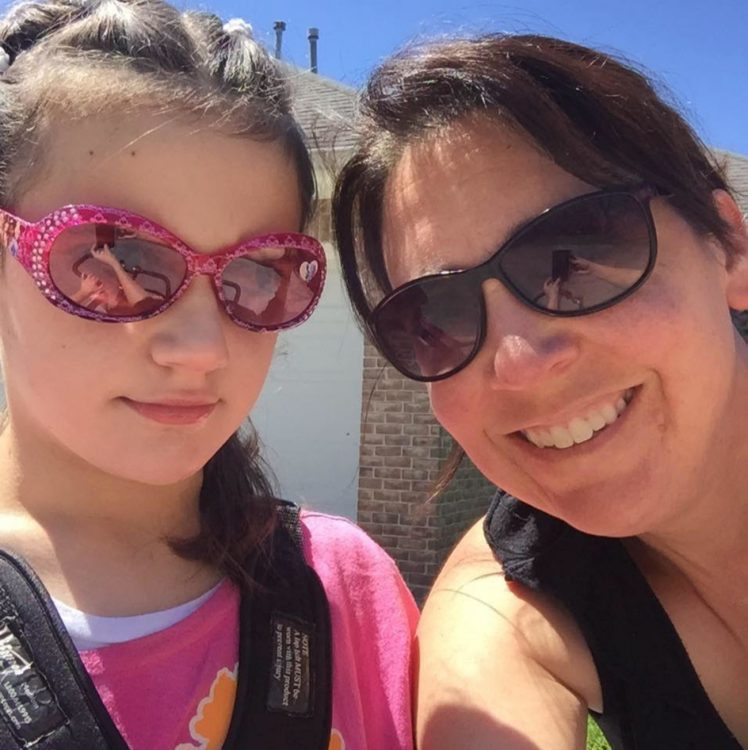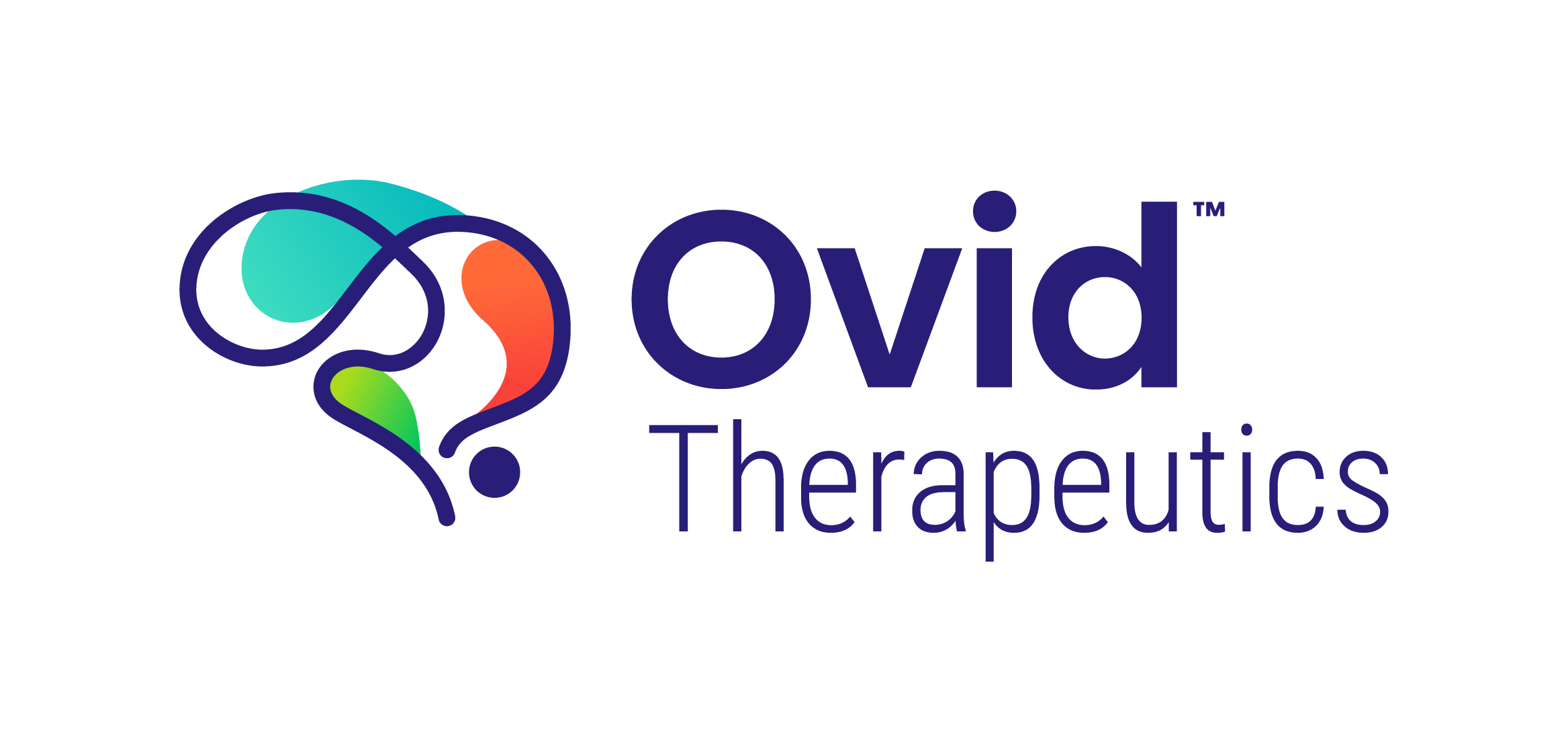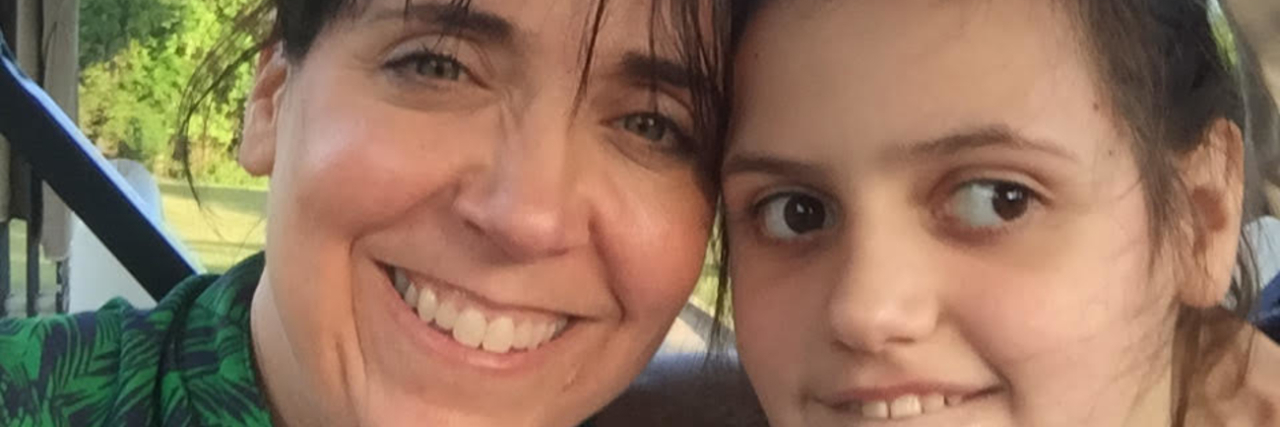We spend much of our lives defining ourselves. We are mothers, we are professionals, we are wives, we are bold, we are timid, we are… the list goes on and on. Not many parents expect to have a child with a disability, yet many of us end up in this category.
When I was pregnant with my second child, I had hopes and dreams for her. Like all parents, I wanted her to discover her talents, serve society in a positive manner, and lead a fulfilling life. My story of becoming a parent to a child with a disability is not much different than other stories. My daughter was born on October 17, 2006, and she appeared to be perfectly healthy.  However, when she was about 10 weeks old, I observed some twitching and jerking that did not seem normal. I called the doctor, even though it was Christmas Eve. He returned my call, assuring me these movements were normal and due to her developing nervous system. Unfortunately, over time these symptoms increased in intensity and frequency, which led us to our first ER visit. I breathed a sigh of relief when all the tests were normal, and the doctors assured me Samantha was meeting milestones and developing appropriately. However, this quickly changed as the seizures increased, wreaking havoc on my precious girl. The doctors ran countless tests and did not find any answers. Suddenly, I was redefined. I became a researcher scouring the world wide web for any information that would help my child. Not only was I a researcher, but I was also now an advocate. I knew the doctors cared, but this was not their child. Instinctively, I realized I knew her best, and would recognize her symptoms in a way doctors (in their short) visits never could.
However, when she was about 10 weeks old, I observed some twitching and jerking that did not seem normal. I called the doctor, even though it was Christmas Eve. He returned my call, assuring me these movements were normal and due to her developing nervous system. Unfortunately, over time these symptoms increased in intensity and frequency, which led us to our first ER visit. I breathed a sigh of relief when all the tests were normal, and the doctors assured me Samantha was meeting milestones and developing appropriately. However, this quickly changed as the seizures increased, wreaking havoc on my precious girl. The doctors ran countless tests and did not find any answers. Suddenly, I was redefined. I became a researcher scouring the world wide web for any information that would help my child. Not only was I a researcher, but I was also now an advocate. I knew the doctors cared, but this was not their child. Instinctively, I realized I knew her best, and would recognize her symptoms in a way doctors (in their short) visits never could.
About one year after the first ER visit, I found a test that fit my daughter’s symptoms and asked the doctor to order it. In 2008, genetic testing was very slow, but five months later, on July 2, 2008, they diagnosed my daughter with a mutation on her CDKL5 gene and believed it to be the cause of her condition. Once again, I was redefined. I was now part of the rare disease community. Immediately, as a parent, I sought a definition for my daughter. I asked, “What does this mean for her? What will she be able to do? Will she walk or talk?” Fortunately, I had a brilliant epileptologist who gave me the best advice by saying, “Do not let anyone tell you what your daughter will or will not do. Learn to accept her true limitations, but the only way you can learn what her true limitations are is by encouraging and pushing her.” He wisely chose not to define my daughter. Instead, he encouraged me to allow her to define herself.
Now, being defined as a CDKL5 disorder parent, I started looking for disease specific answers. In my search I found a Yahoo email group for this diagnosis. There were only a handful of families world-wide. Even though we were few in number, we had a common goal of wanting better for our children. Six other moms and I started an organization, the International Foundation for CDKL5 Research. Through this effort, we created a community—a family. Because of this, no one receiving this diagnosis would ever feel alone again. As a team, we redefined the world for families affected by CDKL5 disorders.

Samantha is now almost 12 years old, and I have spent those years pushing her limits, and accepting the limitations when they are obvious. I have loved her through every moment, every
seizure, every complication, and every challenge. Through these life moments, I have learned the only definition that matters is the love that defines our relationship.It is unconditional and unending. This love has led me on a journey that is challenging yet fulfilling. Samantha has taught me to look at life through a different lens and to never take things for granted. Her willpower gives me encouragement and determination to keep pushing the boundaries—the boundaries of science, education, government, and most of all the boundaries of small minds. By pushing these boundaries, we will redefine society.
This journey taught my family how fragile life can be, so we choose to celebrate every accomplishment and try to live life in the moment. As parents, we can choose to allow these challenges to define us, or we can choose paths that allow us to redefine the situations in which we find ourselves. I hope we continue to choose the latter.


